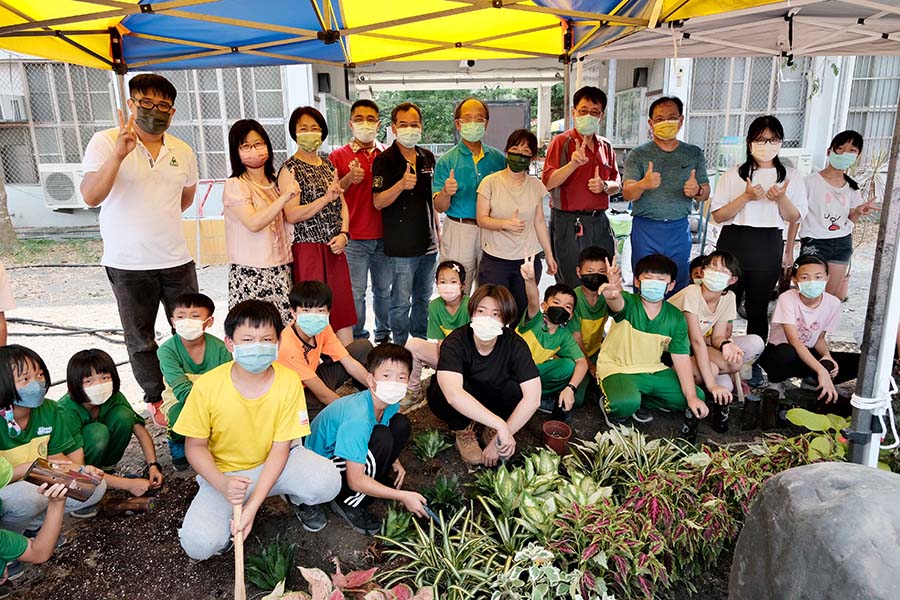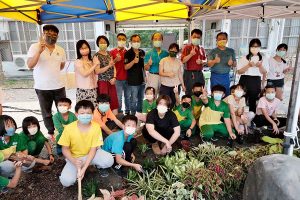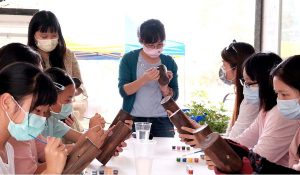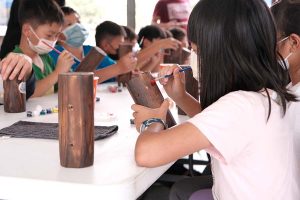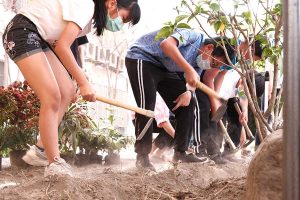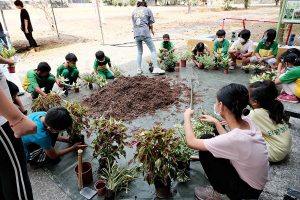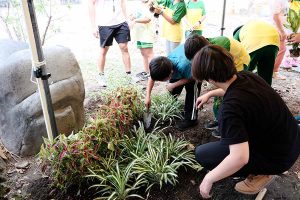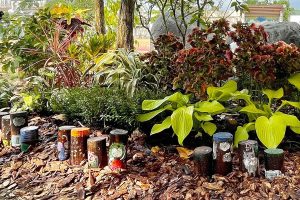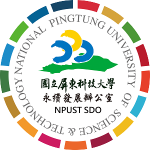To fulfill the concept of university social responsibility and implement agricultural technology education, Assistant Professor Chou Wan-Yu from our Landscape and Recreation Management Institute and Assistant Professor Weng Pei-Yi from the Department of Plant Industry led an interdisciplinary University Social Responsibility (USR) team composed of students from the “Landscape Institute,” “Forestry Department,” and “Agricultural Garden Department.” They conducted a two-day “Elementary School Agricultural Technology Education – Environmental Aesthetics and Therapeutic Education Program” at Ronghua Elementary School in Pingtung County on April 21 and 29. The program aimed to teach upper-grade students about environmental beautification and planting knowledge, involve them in hands-on activities to improve the campus environment, and simultaneously create a green therapeutic space for future natural therapy and green care community activities.
Assistant Professor Chou Wan-Yu, the principal investigator of the project, stated, “Many children today are becoming increasingly disconnected from nature. By actively engaging with natural elements, learning about plant cultivation, and appreciating the beauty of plants, students can foster an interactive relationship with nature and gain the benefits of nature therapy. Building gardens and improving the campus landscape by hand not only allows students to develop a deep emotional connection with the school but also makes them more willing to actively learn about nature and maintain the campus environment.” Principal Chiu Kun-Yu of Ronghua Elementary School added, “I am delighted that the development of special courses in local elementary schools can receive assistance and support from the university side. Through the environmental aesthetics course, we can see the creativity and practical skills of the children. The completed green therapeutic space also deepens the students’ identification with the campus environment.”
Due to resource disparities in rural elementary schools, students often lack diverse information stimulation, and the teaching environment may struggle to support various learning experiences. This academic year, NPUST collaborated with Ronghua Elementary School and Ailiao Elementary School in Neipu Township, Pingtung County. Through the formation of an interdisciplinary USR team, the university conducted agricultural technology education activities. The course content included “mixed cultivation soil,” “understanding landscape plants,” “learning to arrange different heights,” “colorful planting,” “drawing personal garden log fences,” and more. This not only allowed university students to guide elementary school children in creating a unique experience but also cultivated a service-learning attitude, strengthened empathy in interpersonal interactions, and allowed elementary school children to gain sensory intelligence experiences different from traditional curriculum under team leadership.
The NPUST faculty and student team leading the “Environmental Aesthetics and Therapeutic Education Program” has conducted two sessions of activity courses at Ronghua Elementary School. During the second session, several elementary school principals from Pingtung County were invited to participate and observe. They shared their experiences with the project, fostering unique and profound experiences and memories for each student on the campus.



